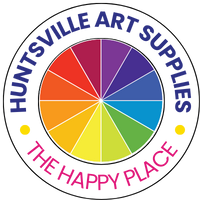Daniel Smith Extra Fine Watercolor - Black (Blue/Orange), 15 ml Tube
Daniel Smith Extra Fine Watercolor - Black (Blue/Orange), 15 ml Tube
ON SALE - 25% OFF.
Discount applied at checkout. We do not offer shipping.
5 in stock
Couldn't load pickup availability
Pigment Information
This color contains the following pigments:
PB15:6-Phthalo Blue
PR188 -Naphthol Red
PO71-Pyrrole Orange
Pigment Name
PB15:6-Phthalo Blue
Pigment Type
organic
Chemical Name
epsilon copper phthalocyanine
Chemical Formula
C32H16CuN8
Properties
Phthalo Blue PB15:6 is a structural variant of Phthalo Blue PB15 that produces more yellowish tones.
Permanence
Phthalo Blues are completely lightfast and stable and are permanent for all paint uses. They are currently used in inks, coatings, and many plastics due to their stability and are considered a standard pigment in printing ink and the packaging industry.
Toxicity
Phthalo Blues have no significant hazards, although those made before 1982 contained some PCBs (polychlorinated biphenyls).
History
Developed by chemists using the trade name Monastral Blue, the organic blue dyestuff now known as Phthalo Blue was presented as a pigment in November 1935 in London. Its discovery was accidental. The dark color was observed in a kettle where a dye was being made from a British dyestuff plant. The demand for such a pigment came from commercial printers who wanted a cyan to replace Prussian Blue.
Pigment Name
PR188 -Naphthol Red
Pigment Type
organic monoazo
Chemical Formula
C33H24Cl2N2O6
Properties
This Naphthol Red is yellowish, with a high tinting strength and average drying time. It produces warmer shades and tints.
Permanence
This Naphthol Red has excellent lightfastness, though it is generally not considered adequate for exterior use.
Toxicity
Naphthol Reds are not considered toxic. They may cause eye, skin, or respiratory irritation. Contact with dry pigment should be avoided.
History
Naphthol pigments are actually dyes that are "laked" to form pigments. First developed by the German chemical company Hoechst A.G. before World War I, their use in artist paints began in the 1920s.
Pigment Name
PO71-Pyrrole Orange
Pigment Type
organic, diketopyrrolo
Chemical Name
diketo-pyrrolo pyrrole orange
Properties
Pyrrole Orange PO71 is a transparent pigment with average or moderate tinting strength. It produces cleaner mixtures than cadmium-based colors.
Permanence
Pyrrole Orange PO71 has been reported to have excellent lightfastness, and better weather fastness than comparable cadmium pigments.
Toxicity
Pyrrole Orange PO71 has not been reported to be hazardous. In art materials, diketopyrrolo-pyrrole pigments are often promoted as non-hazardous alternatives to cadmiums.
History
Pyrrole Orange is one of the most popular diketopyrrolo-pyrrole pigments (DPP), discovered and marketed since the 1980s by Ciba-Geigy. It is used mainly in printing inks and plastics. It has also been used in automotive and industrial paints. In art materials, it has become most widely used in acrylics.
DJ284600250
TU
1
Watercolors
0.065000000000000002
DS W/C 15ML JANES BLK BLUE/ORG
Share


